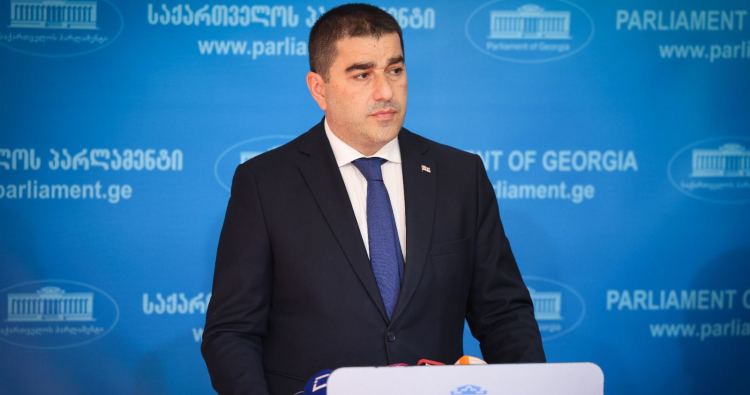Parliament Speaker announces creation of database of individuals “involved in violence, illegal actions, threats, blackmail”

Georgian Parliament Speaker Shalva Papuashvili said the Political Council of the ruling Georgian Dream party had decided to create a database of information about individuals "involved in violence, other illegal actions, threats and blackmail, or publicly approve of such actions" on the backdrop of ongoing protests against a bill on the transparency of foreign influence. Photo: Parliament of Georgia
Georgian Parliament Speaker Shalva Papuashvili on Wednesday said the Political Council of the ruling Georgian Dream party had decided to create a database of information about individuals "involved in violence, other illegal actions, threats and blackmail, or publicly approve of such actions" on the backdrop of ongoing protests against a bill on the transparency of foreign influence.
Papuashvili announced the database would be published on a “special website” and would be “public and transparent” to citizens.
He added “all measures” would be taken against these persons within the framework of the Georgian constitution and the law, “so that violations of the law, violence and threats do not remain without response of the state or the society".
Papuashvili added along with state structures, the ruling party also had the responsibility to “protect legitimate interests of citizens, law enforcement officers and outstanding members of society”.
The state has a responsibility to confront all violence, lawlessness that has nothing to do with peaceful protest”, the Parliament Speaker said.
The Georgian Parliament last week approved the second reading of the bill that has sparked public protests and criticism by some of the country’s foreign partners.
The legislative piece, which calls for registration of non-commercial legal entities and media outlets in the country as “pursuing the interests of a foreign power” if they derive more than 20 percent of their funding from abroad, was supported by 83 MPs in the 150-member lawmaking body.
It requires groups “considered to be an organisation pursuing the interests of a foreign power” to be registered in the public registry with the status and publicise information on their funding.
 Tweet
Tweet  Share
Share